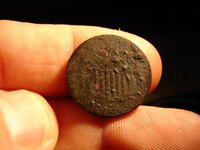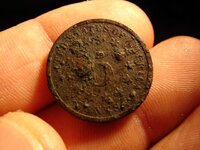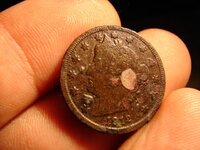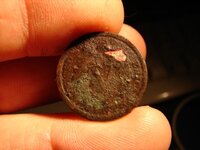A
archaeon
Guest
Evening Folks! Went to the site where I found the cache of mucket flints and pulled a crusty sheild nickle, it's my first! Old coins hard to come by in Floirda....
I am not new at detecting, but I am new at restoring coins, except for putting copper and brass in olive oil for a long time...could someone please explain the best way to clean old nickles? I also found the V nickle a few weeks back at the same site....(also my first V)
I am not new at detecting, but I am new at restoring coins, except for putting copper and brass in olive oil for a long time...could someone please explain the best way to clean old nickles? I also found the V nickle a few weeks back at the same site....(also my first V)

Attachments
Upvote
0










